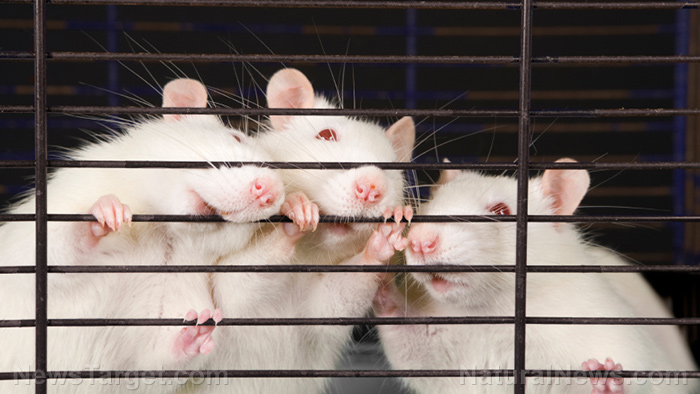Study: Teens should run a mile every day to prevent depression
06/11/2018 / By Carol Anderson

Teens aged between 15 and 19 were found to be more vulnerable to succumb to depression due to academic stress and social pressure. To combat this mental issue, experts suggest that teens run a mile daily to prevent depression.
Research says, the lack of physical activity could possibly be the reason why more kids are having problems with mental health issues. This case is even more evident in secondary school as students become more sedentary.
What started out as a simple initiative of primary school headteacher Elaine Wyllie in Scotland, the “daily mile” has now become a solution in more than 2,000 schools in the U.K. to address the issue of the kids’ lack of physical activity and depression. Essentially, kids either walked or jogged or ran for 15 minutes in addition to their P.E. class. The study showed that children who participated in the scheme appeared to be significantly healthier.
Professor Mark Beauchamp of the British Columbia University noted how ideal the daily mile is since it does not require specialized exercise equipment and can be done at any given time. He also suggested trying the “Take 10!” scheme practiced in the U.S. wherein students do a combination of a 10-minute exercise and “walking meetings.”
Moreover, a Harvard University study emphasized that while taking medications such as antidepressants is a common treatment among sufferers, exercise is also a good solution to treat depression. However, researchers clarified that severe cases of the condition may need more than just regular exercise.
Benefits of exercising for your mental health
Exercise has always been tagged as an effective way to help fight stress and depression. According to studies, exercise releases happy endorphins which are brain chemicals that leave a person happier. In addition, having a routine of physical activities can promote a healthier psychological and emotional state.
- Regulates your mood – Exercising helps you take your mind off your worries and releases toxins that help you stay in a calm mood.
- Improves brain function – It improves the growth of nerve cells in your hippocampus which helps relieve depression.
- Boosts your confidence – More than just physical looks, meeting your fitness goals will also boost your self-confidence and push you to do more.
- Gain new acquaintances – Many are discovering the benefits of exercising so your chances of meeting fitness buddies are high. It’s even more beneficial as having friends with the same goals can make you more motivated.
- Great coping mechanism – Instead of drowning yourself with negative thoughts and drinking your worries away, exercising will more effectively let you blow off some steam.
- Lets you sleep better – Regular exercise will help you get a good night’s sleep. It also gives you a better feeling when you wake up in the morning.
Simple exercises you can do at home to relieve depression
A gym membership is not really necessary if you want to start exercising to help you fight off depression. Try these simple workouts you can do even at home:
- Walking or jogging – Going on a walk or a jog is the simplest form of exercise you can do. You can easily squeeze it in on your daily routine. For example, walk to your school or office instead of commuting. (Related: 90% of U.S. teens aren’t getting enough exercise.)
- Try yoga or tai chi – These Eastern methods let you relax while soothing your muscles. Studies say people who are into yoga or tai chi are found to be less likely to succumb to a depressed state.
- Run – It is said that after finishing a run, you’ll feel euphoric. This is due to the endorphins released in the brain as a response to the physical activity.
Learn more on how exercise can improve your mood by visiting Mind.news.
Sources include:
Tagged Under: alternative treatments, Antidepressants, Anxiety, Clinical depression, depression, endorphins, exercise, health benefits, jogging, mental health, mind body science, Naturopathy, physical activity, remedies, running, severe depression, stress, stress relief, stress reliever, teenagers, Teens, walking



















